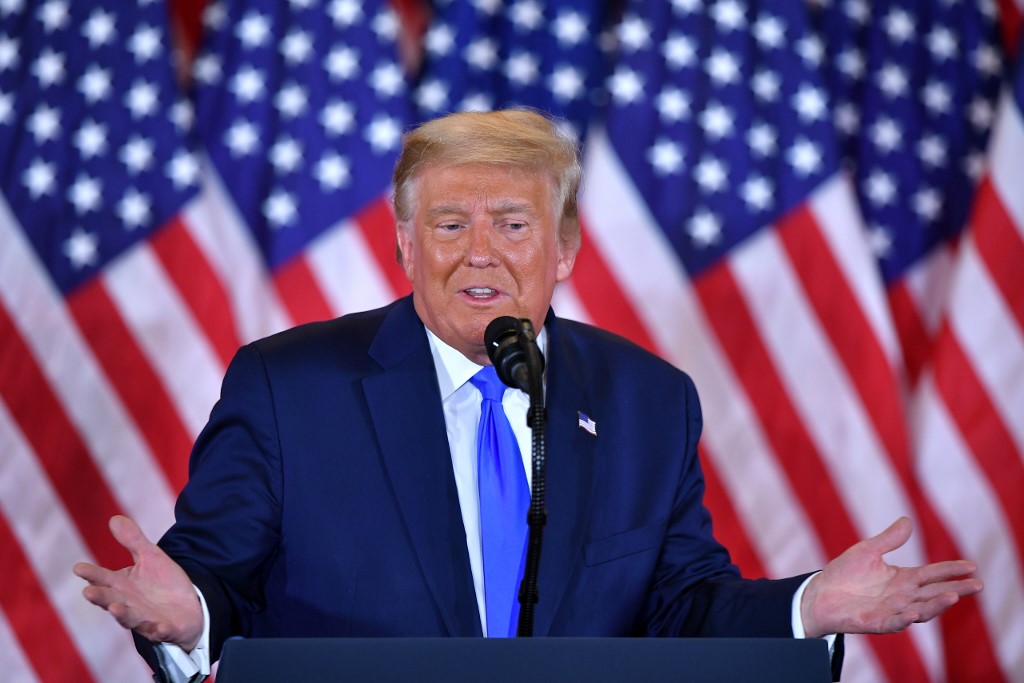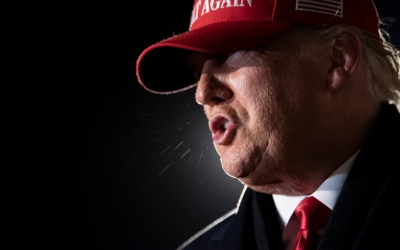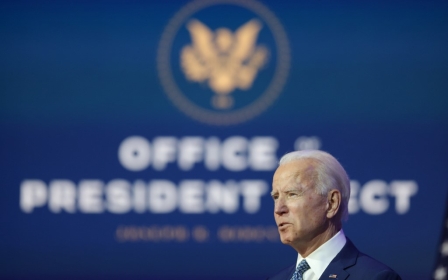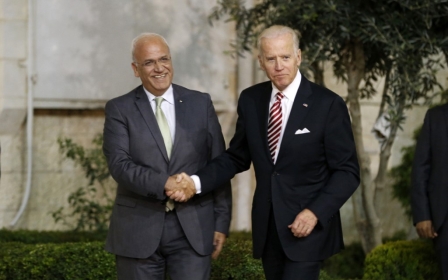US elections 2020: Can Joe Biden restore Brand America?
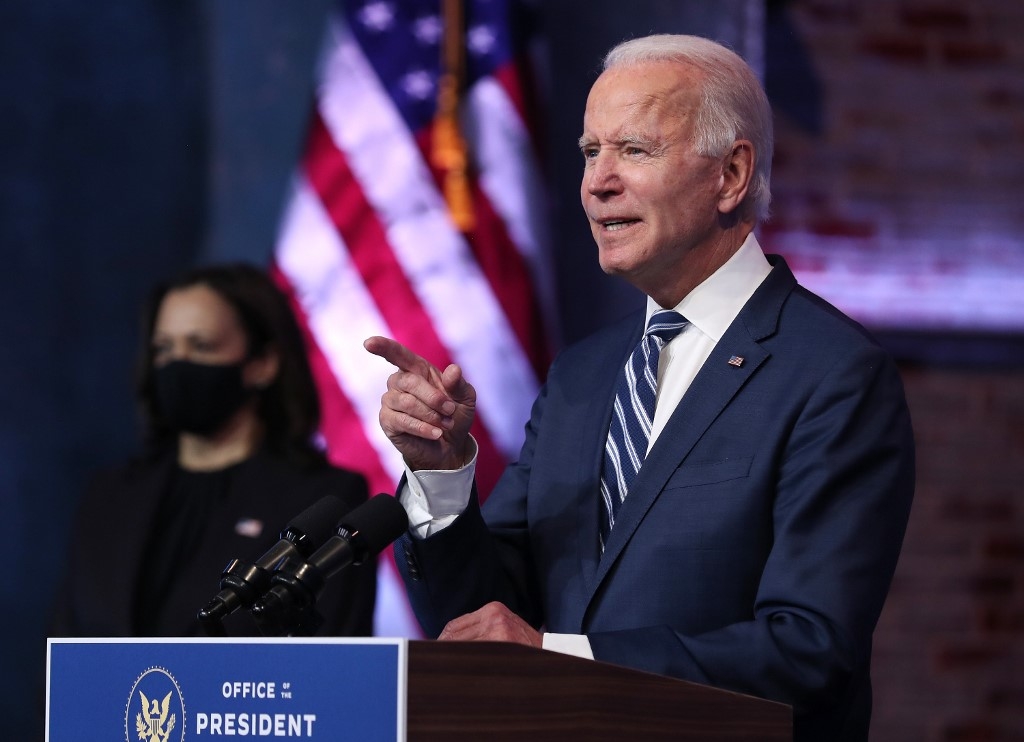
In his election victory speech on 7 November, President-elect Joe Biden promised to “make America respected” again by salvaging its global reputation, which took a steep fall throughout President Donald Trump’s tenure and dropped to record lows in 2020.
According to a recent Pew Research Center study of global attitudes and trends, South Korea was the only country surveyed where the majority still held a favourable view of the US, with 59 percent of respondents expressing confidence in the world’s dominant superpower.
Biden has an enormously heavy lift to restore his country's reputation to the levels it enjoyed in the post-Cold War and pre-9/11 era
This represents an astonishing failure for Brand USA, given the dizzying heights to which American soft power had soared by the end of the Cold War, with the high-water mark of the 1992 Barcelona Olympic Games, when the US men’s basketball “Dream Team” and Michael Jackson’s “Dangerous World Tour” were the hottest tickets on the planet. This was a year or so after Saddam Hussein’s forces were removed from Kuwait, and a charismatic and energetic Bill Clinton was en route to the Oval Office.
The world couldn’t get enough of anything emotionally and materially attached to Brand USA, from Hollywood films and American pop stars, to Nike shoes, IBM computers, McDonald’s and Burger King. If it was American, it was desired. This is why when 19 hijackers brought the Twin Towers in New York City crumbling to the ground in 2001, taking with them thousands of lives, international newspaper headlines read: “We are all Americans.”
Sadly, it took President George W Bush all of five minutes to unwind this unprecedented level of global solidarity and goodwill towards the US. The world was repulsed by his buffoonish, cartoonish cowboy swagger, and divided by his false binary of being “with us or against us”. Citizens of the world are far more complex and nuanced than the obnoxious and jingoistic “my country, right or wrong” odes sung by US hyper-patriots.
The illegal invasion of Iraq in 2003; the grotesque abuses against detainees at Abu Ghraib, Guantanamo Bay and CIA black sites around the world; the secretive drone wars; and the unrelenting killing of civilians by warplanes carrying the US flag and that of its allies in Afghanistan, Somalia, Pakistan, Mali, Yemen and elsewhere led around a third of respondents in a 2017 Pew survey to identify the US as a major threat to global peace.
Recommitting to democracy
Needless to say, Biden has an enormously heavy lift to restore his country’s reputation to the levels it enjoyed in the post-Cold War and pre-9/11 era, but there are a number of places where he could and should start.
Biden should recommit the US to the pursuit of global democracy, human rights and international law, while strongly condemning authoritarian regimes, dictators and human rights violators. In the same vein, he should recommit the US to multilateral institutions and treaties - including the UN Human Rights Council, Unesco, UNRWA, the World Health Organization, the Iran nuclear deal and the Paris climate accords - and mend damage done by Trump to longtime US alliances, including Nato and the European Union.
Biden should reset the Israeli-Palestinian peace process by promising to act as an honest and impartial broker, ending the uncritical support the Trump administration handed the Netanyahu government. He should renounce Trump’s “deal of the century”, call for an immediate halt to new settlement construction, reinstate the $200m in Palestinian aid that Trump cut, and renew diplomatic talks with all Palestinian political parties, including Hamas.
In addition, Biden should end the Muslim travel ban, which has cruelly deprived Arab American families of visits to their loved ones for weddings, birthdays, anniversaries, funerals and to see sick relatives. He should give a clear and unambiguous condemnation of white supremacy, white nationalism and other violent, far-right ideologies.
In Yemen, Biden should end US military support for the Saudi-led war, which has claimed more than 100,000 lives and created the world’s largest humanitarian crisis. He should end blank-cheque military support for serial human rights violators, including Saudi Arabia, the UAE, Egypt and Israel.
Preserving international law
Biden should end the secretive US drone war, which continues to kill civilians in many parts of the world, including Somalia, Afghanistan and Yemen. He should promise to resolve the conflict in Kashmir and condemn the Indian government for its human rights violations in the Muslim-majority territory.
The incoming president should also recommit to international law as it pertains to the prevention of genocide and ethnic cleansing, and hold accountable those responsible for the persecution of Uighur Muslims in China, Rohingya Muslims in Myanmar, displaced Syrian refugees in Idlib, and others subjected to state terrorism.
On the domestic front, Biden needs to take measurable and meaningful steps to resolve racial injustices and other forms of inequality in the US.
Obviously, the measures identified above are non-exhaustive. There’s an array of deeds and words the incoming White House administration could take to salvage the country’s tarnished global reputation - but ultimately, the world won’t follow or re-follow the US until it once again chooses to lead by example.
The views expressed in this article belong to the author and do not necessarily reflect the editorial policy of Middle East Eye.
Middle East Eye propose une couverture et une analyse indépendantes et incomparables du Moyen-Orient, de l’Afrique du Nord et d’autres régions du monde. Pour en savoir plus sur la reprise de ce contenu et les frais qui s’appliquent, veuillez remplir ce formulaire [en anglais]. Pour en savoir plus sur MEE, cliquez ici [en anglais].



